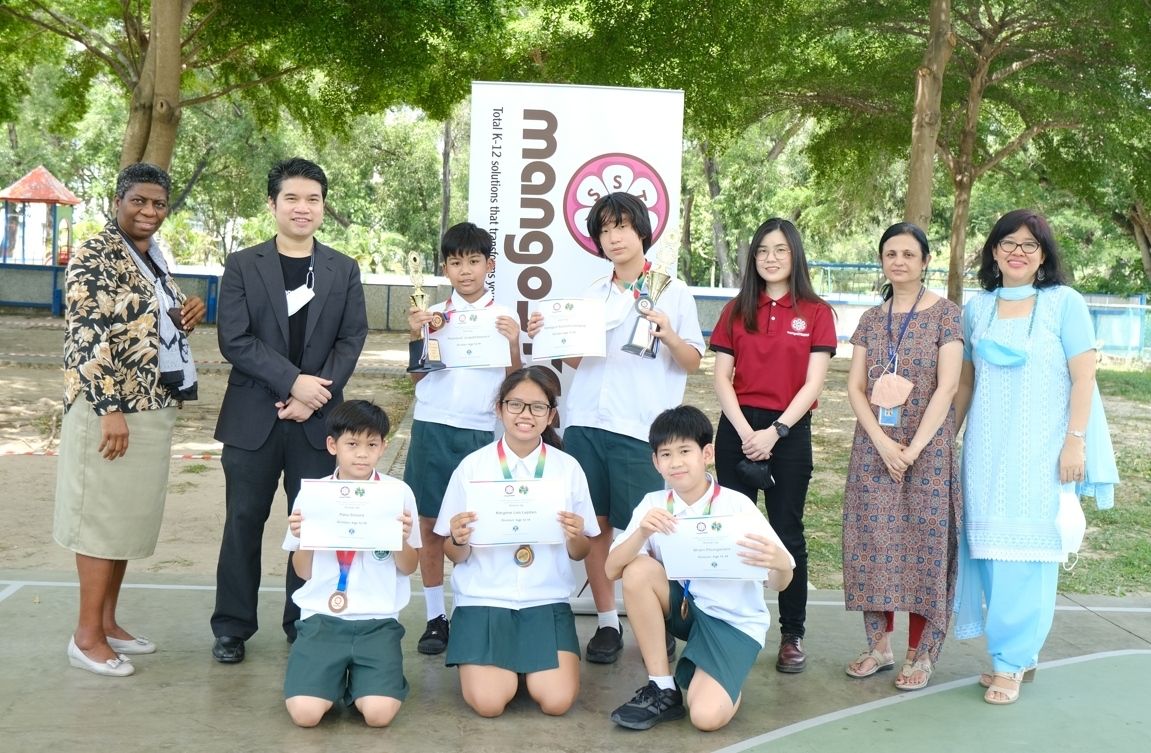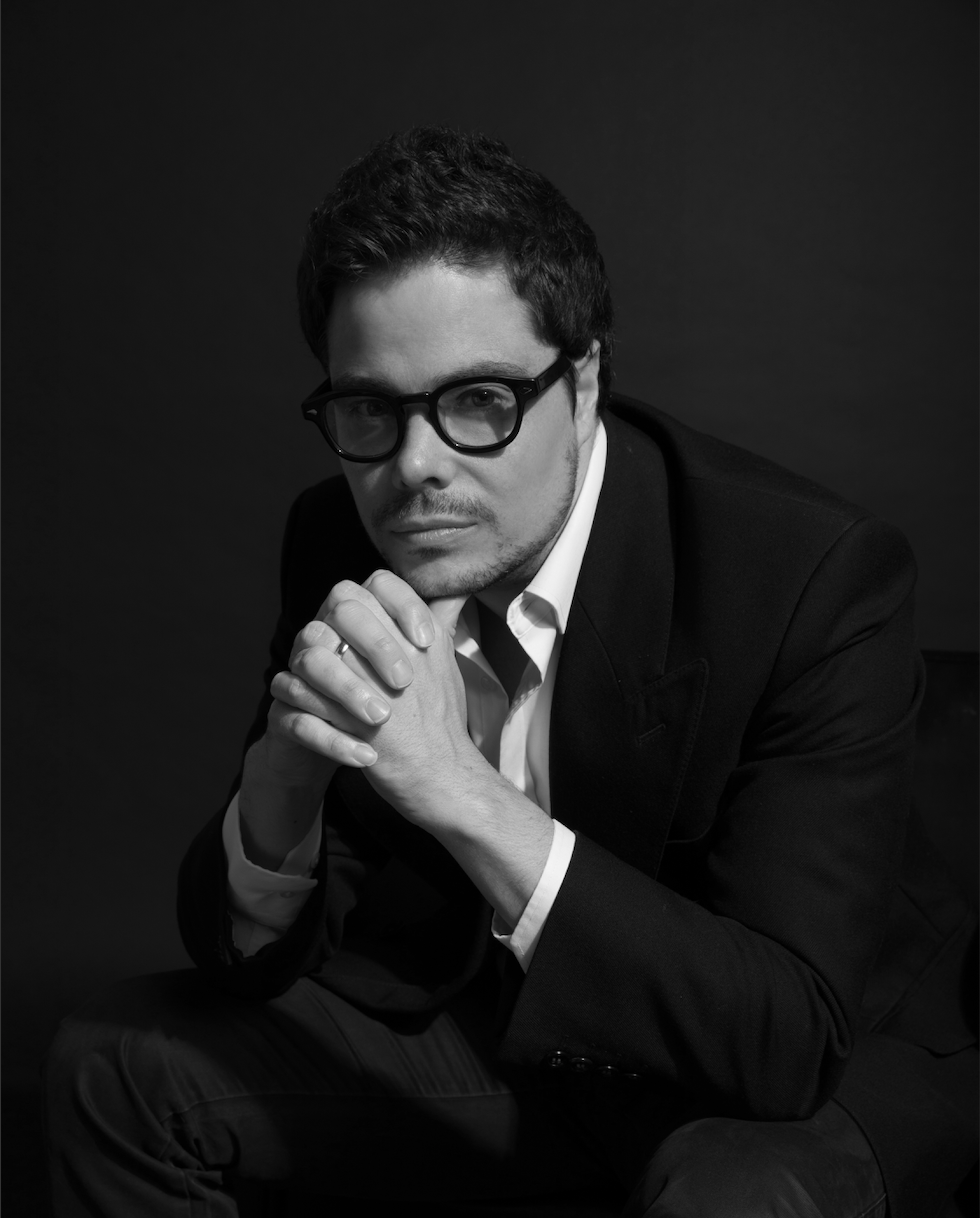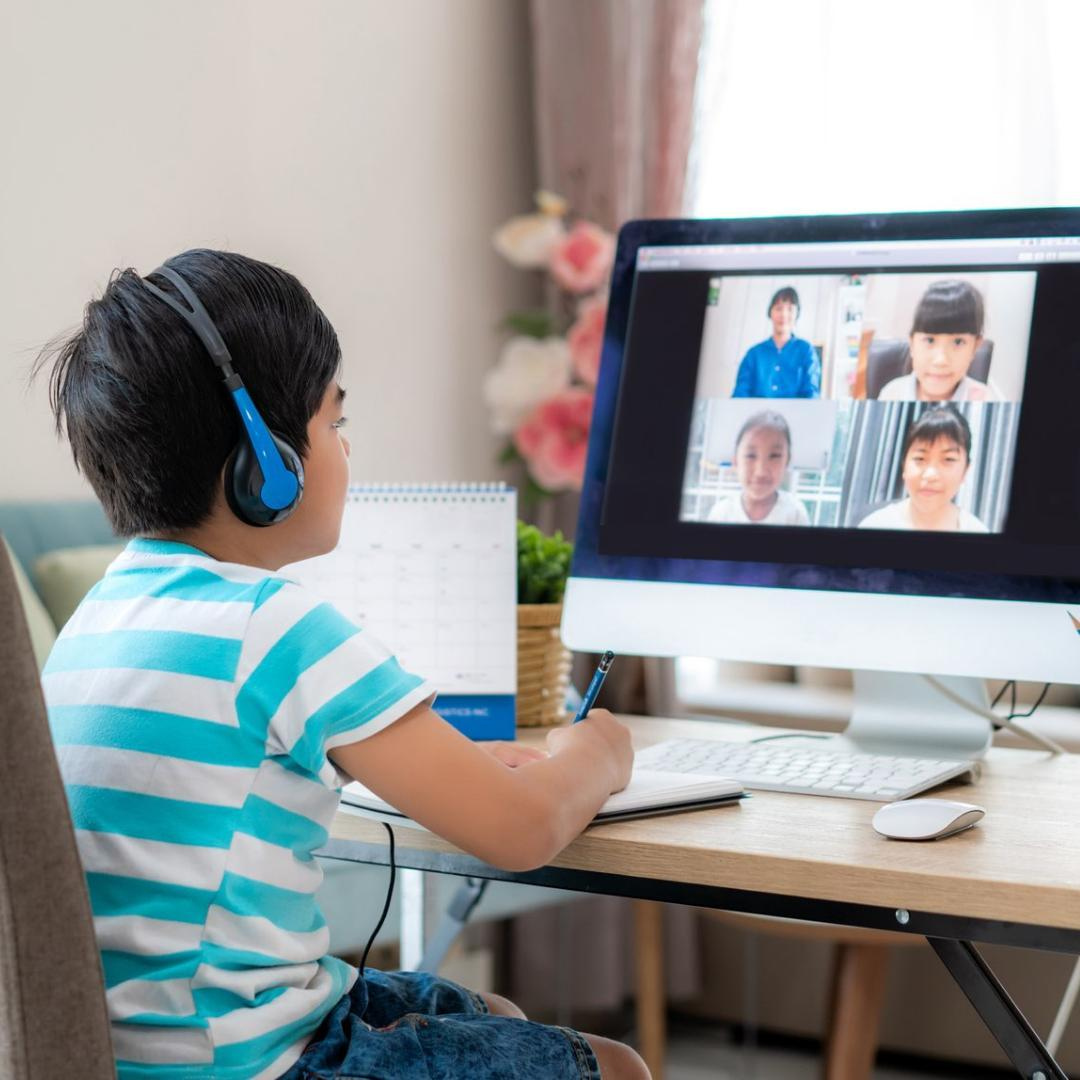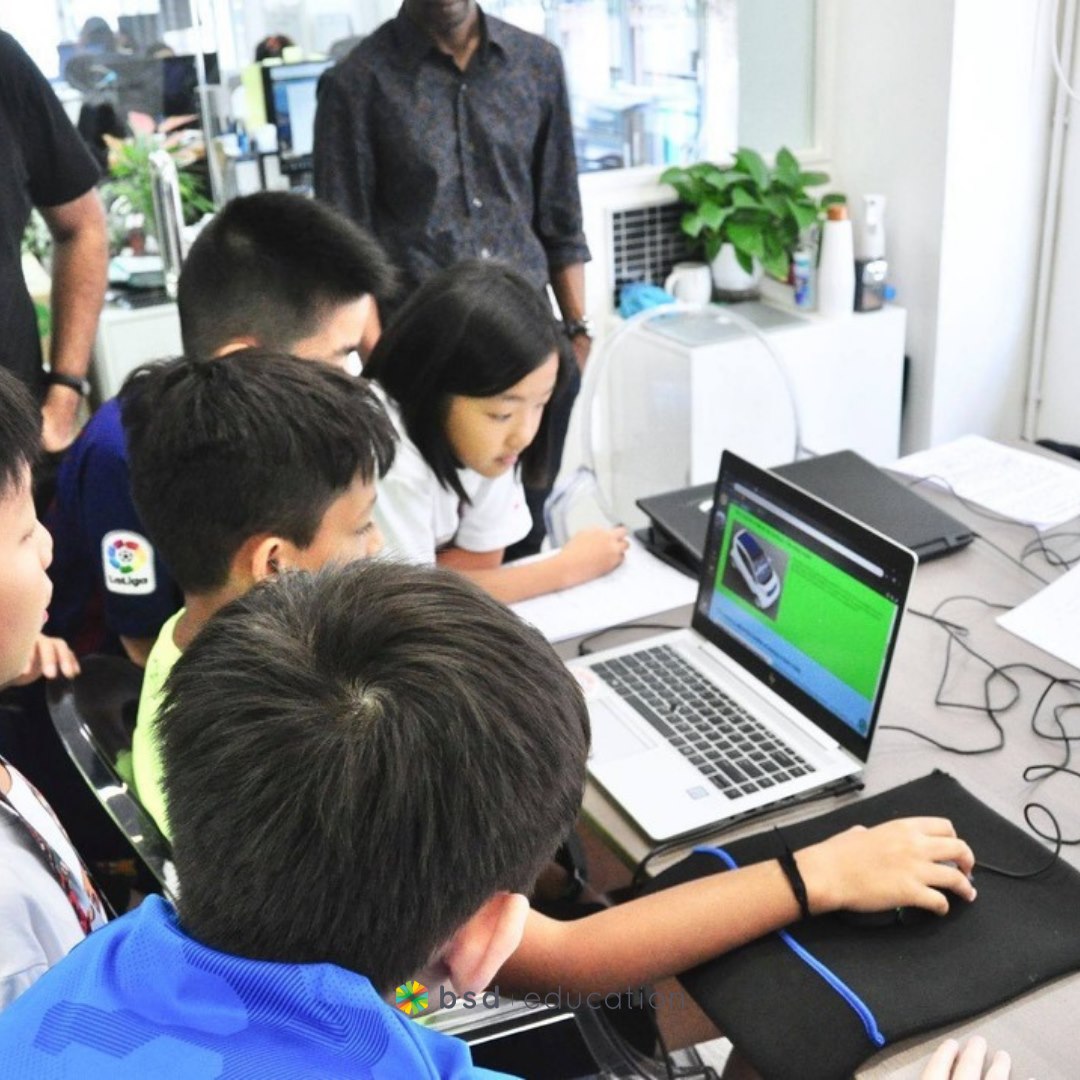How BSD Education is making digital skills more accessible

A few minutes every morning is all you need.
Stay up to date on the world's Headlines and Human Stories. It's fun, it's factual, it's fluff-free.
Wanting to make tech education more accessible for teachers and students, BSD Education (Build Something Different) offers a customizable curriculum for educators wanting to bring digital skills learning to the classroom. Chris Geary and Nickey Khemchandani founded the program in Hong Kong in 2013, and since then, it has made learning technology, digital skills and coding more available for all learning levels. They focus on fostering a productive learning environment for students by empowering educators to take on teaching digital skills directly rather than outsourcing to other professionals. The goal is to meet students where they are rather than hold them to an inequitable standard.
TMS sat down with co-founder Chris Geary, whose 20 years of experience as a business operator and investor, advisor to the World Economic Forum and more helped him develop the concept for BSD Education. We chatted about his non-linear path to the field of education, BSD’s methodology and all things digital skills.
Geary’s path to BSD Education

On the path to becoming a lawyer while pining for a career in the corporate sports world, Geary eventually landed on entrepreneurship and underwent sales training to help him run his new business. He had discovered that, during his time at university, he enjoyed his side gig of running a tennis business even more than the time he spent studying law. From there, it was a natural move to start a business.
“My first foray into entrepreneurship was around corporate intelligence and research, and there was a huge boom that went hand-in-hand with the advent of social media," says Geary. “That led to a massive recruitment boom because recruitment had traditionally been with personal networks only. Then it was companies like LinkedIn that came and blew apart the ability to create Boolean strings and search globally and identify people through data."
Through and coming out of an economic downturn, Geary noted a recurring theme from 2004 to 2012 – human beings are the most valuable business assets, regardless of how far technology goes. At the same time, Geary noted gaps in skill sets, especially related to digital skills.
While companies bemoan the lack of digital skills among job applicants, they’re partly to blame for that missing expertise. And so are global education systems. Most typical educational programs fall short when teaching modern digital skills. Now, technology is advancing exponentially and only increasing the knowledge gap.
“No one has ever in history walked away from the adage that human beings are the most valuable asset of any business, says Geary. “The best technology in the world – zero – [it’s] going nowhere without humans. But it was increasingly obvious that there were significant skill mismatches. And when I dug into that, it became increasingly apparent that the skill mismatch is related to a large extent to digital skills. Now you’re hearing about this in the news on a daily basis nowadays, and countries and companies are wailing about this lack of digital skills … To be honest, it was bleeding obvious 10 years ago, and people needed to pull their socks up 10 years ago, and they didn’t. And now they’re going to suffer through it now because technology is evolving even more quickly. But it was really against that backdrop of this, this digital skill divide that we, myself and Nicky, teamed up, and we decided to set up BSD education.
So, facing the digital skills divide, Geary and Khemchandani, a digital veteran with extensive consulting experience in educational technology, founded BSD Education in Hong Kong initially.
“One of the unique features of digital skills is that they are inherently democratic," says Geary. “What I mean by that is that we’ve seen education systems set up to divide people and take opportunity away from people."
Geary goes on to explain how systems like the British A Levels, the Bac in France and the American SATs were set up to churn out human cogs for a factory machine.
“It’s not a healthy way for education to be set up," says Geary. “But digital skills go away from that because they’ve never been tested, they’ve never been examined. But businesses desperately need them, and businesses will judge your digital skills by what you can do. So if you can show what you can actually deliver, you can get an opportunity.
“And that I think, is one of the biggest equalizing opportunities in the world of work than we’ve ever seen. So that would lead me to say that the future of work is one of the biggest equalizing opportunities that we’ve known for hundreds of years."
What, exactly, are digital skills?
Digital skills go beyond technological skills. They include an array of hard skills and soft skills. It’s an important balance to strike when it comes to something as omnipresent and influential as tech.
“Right now, every part of our conversation, our environment, there’s data that’s been sucked out to us, repurposed and thrown back at us in a way that will influence us and potentially control us," says Geary. “So simply being a user in digital skills is not healthy. And that’s not what digital skills are about. There are hard skills which are important. You’ll see from coding to knowing the principles of design and being able to execute those to using certain software packages. Those are hard skills, and they are important."
But, according to Geary, those hard skills are useless or even harmful without soft skills like empathy and teamwork. That’s due to the intricate ecosystem of technology and the inability of a single person to master every facet of the field. So, if you intend to make a meaningful, positive impact, you have to work as a team.
“The hard skills of technology are nothing without the soft skills of technology," says Geary. “And that’s partly related to the extent to which technology is so intrinsic to every facet and feature of our life nowadays, but also where technology is this, I’m going to call this an ecosystem, but it’s bigger than an ecosystem and understates the complexity and the extent of technology, but technology is so complicated. No one masters everything in technology. That means that if you’re going to really progress, if you’re really going to move and create incredible solutions that impact people’s lives in an incredibly positively beneficial way, you’ve got to work as a team because you’ve got to be great at some things. You’ve got to understand what you’re not great at. But more important than all of that is you’ve got to work with other people who are great at what they do."
“The hard skills are dispensable," Geary adds. “You know the hard skills will continue to change as the software will continue to change. But the soft skills will never ever, ever diminish in importance."
The BSD approach

BSD’s lessons and curriculum are framed around empowering students’ individual learning styles and strengths through an approach called Explore, Learn, Create. This involves learning by doing and working on projects with real-world applications.
“A key tenet of our approach to learning that has been developed over the last few years is this area of Explore, Learn and Create," explains Geary. “So what we want when we’re creating education experiences for young people – obviously, I’ve mentioned care principles; I’ve mentioned the fact that we’re looking at educational experiences that nurture a blend of skills, not just hard technical skills – but at the same time, what we look at is we look for students to go through a learning journey on the basis of Explore, Learn, Create. So it’s more a concept at the beginning. We’re exploring the area of digital skills, then doing some learning.

This starts with a learning cycle that is supportive and helps guide the student to success while nurturing their individual and unique strengths and creativity.
“And what we do is we gradually take the scaffolding away," says Geary. “So we give them quite a lot of scaffolding at the beginning, build confidence and then slowly take that scaffolding away. And then in the end, what we do is we take the training wheels away to the extent that by the end of the process, students can have as much freedom and creativity as possible. And that means your end result of a learning experience is individual to every student in the classroom."
BSD Education works across all levels, from individual schools and educators to government-level contracts with thousands of students. They also offer monthly webinars for educators looking to brush up on their skills and competence. So far, the BSD community has grown to around 6,000 educators, and it’s continuing to grow.
Not a product; a partner
Geary points out that BSD is not a product; they’re a partner. BSD Education has partnered with schools in 22 countries, but one in particular sticks out to Geary: Good Samaritan Colleges in the Philippines.
“Good Samaritan really embodies the spirit of partnership that we operate with the schools that we work with. I can remember when we started to work with this school, and I had a meeting with the executive director. They had an ambitious plan to develop a digital skills program."
They had to overcome obstacles related to the limitations of the Philippines, like device availability and connectivity. Since they couldn’t resolve those issues remotely, BSD Education ambassadors hopped on a plane to Cabanatuan. Geary spent a week with the administrators, educators, students and even the partners of Good Samaritan Colleges. At a school without Wi-Fi and equipped with only 20 computers, they had a long way to go. With BSD’s help, Good Samaritan founded a technology drop-in center, which hosts hundreds of students attending each week.
“They’ve also developed an incredible virtual and hybrid program, stimulated by the pandemic, but something that will continue," says Geary. “There are outcomes at every single level in our partnership, and that’s something that’s really important. If you see yourself as an ed-tech product, if you see yourself just trying to scale rather than to actually create a genuine impact, you’ll never achieve that quality or those outcomes.
“That Good Samaritan partnership is just such an awesome accomplishment in whatever direction wherever we go from here with BSD Education. That’s one that we’ll always be proud of, I think, the rest of our lives."




Comments ()